Table of Contents
Introduction to Imilchil Festival
The Imilchil Marriage Festival, held annually in the Atlas Mountains of Morocco, is a unique celebration of Berber culture and traditions. The festival is known for its mass wedding ceremony, where young men and women from different tribes come together to find their life partners and get married in a traditional way. A festival is a three-day event held in September, and it attracts visitors from all over the world who come to witness the colorful and lively event. During the festival, young men and women wear their finest traditional clothing and adorn themselves with jewelry and henna tattoos.
They gather in a large, open space where they dance, sing, and socialize with one another. The festival is a celebration of love and unity, and it is a reminder of the power of love to bring people together. The main highlight of the festival is the mass wedding ceremony, where couples declare their love for each other and exchange vows in front of their families and friends. The festival also features traditional music and dance performances, camel races, and horse shows.
The festival concludes with a traditional feast, where visitors can sample local dishes and delicacies. The Imilchil Marriage Festival is an important cultural event in Morocco, and it is a unique opportunity to witness a traditional mass wedding ceremony in a beautiful and remote part of the world.
History of the Imilchil Marriage Festival:
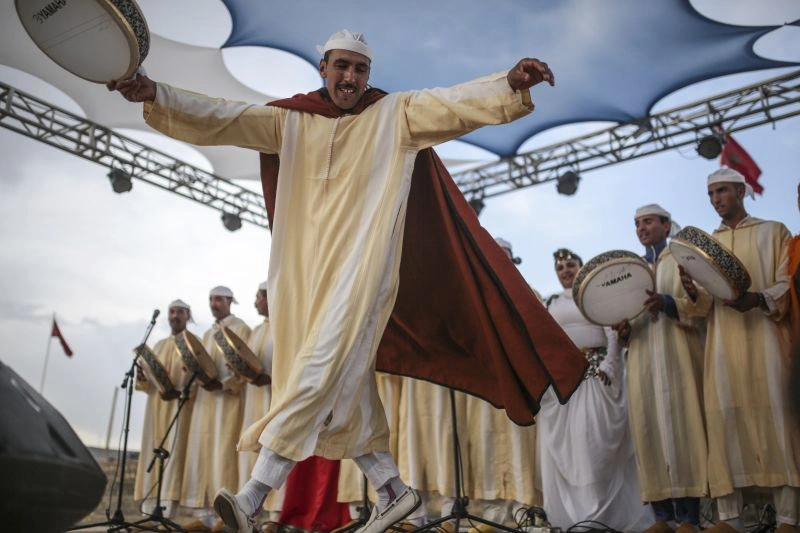
The Imilchil Marriage Festival, also known as the Imilchil Moussem or the Souk Aam Zayane, is a traditional Berber festival held annually in the small village of Imilchil in the Atlas Mountains of Morocco. The festival is famous for its mass weddings, where young men and women from different tribes gather to find their life partners and tie the knot.
The origins of the Imilchil Marriage Festival can be traced back to a Berber legend that dates back to the 4th century. According to the legend, two young lovers from different tribes, Isli and Tislit, were deeply in love, but their families were against their union. The couple was so heartbroken that they cried themselves to death, and their tears formed two lakes that are still visible in the region.
In commemoration of this tragic love story, the Berber tribes of the region decided to organize a festival where young men and women could find their life partners without the interference of their families. The festival was originally held in the month of August, but it was later moved to September to coincide with the end of the harvest season.
During the festival, young men and women from different tribes gather in Imilchil to dance, sing, and socialize. The festival culminates in a mass wedding ceremony, where couples declare their love for each other and exchange vows in front of their families and friends.
Today, the Imilchil Marriage Festival has become a major cultural event in Morocco, attracting thousands of visitors from all over the world. The festival is a celebration of Berber culture and traditions, and it serves as a reminder of the power of love to bring people together.
The Purpose of the Festival:
The purpose of the Imilchil Marriage Festival is to bring together Berber families from different tribes to facilitate marriages and strengthen alliances. The festival is also an opportunity for young Berber men and women to meet and find potential spouses. In addition to its practical purposes, the festival is also a celebration of Berber culture, with music, dancing, and food is an integral part of the festivities.
Festival Preparations:
Preparations for the Imilchil Marriage Festival begin months in advance. The local Berber community works together to build temporary tents, decorate the area with colorful fabrics and carpets, and prepare traditional foods. The festival also requires a lot of planning and coordination to ensure that everything runs smoothly, including the matchmaking process and the cultural performances.
The Matchmaking Process. One of the main events of the Imilchil Marriage Festival is the matchmaking process. This involves a series of negotiations between families to arrange marriages between young men and women from different tribes. The negotiations can be complex, with factors such as dowry, inheritance, and social status all coming into play. Once an agreement is reached, the couple is officially engaged, and a wedding date is set.
Cultural Performances:
In addition to the matchmaking process, the Imilchil Marriage Festival also features a variety of cultural performances. These include traditional Berber music, dancing, and poetry recitals. Many of the performances are highly symbolic, with dancers and musicians wearing colorful costumes and using traditional instruments. These performances are an important part of the festival, helping to reinforce the cultural identity of the Berber community.
Food and Drink:
Food and drink are an important part of the Imilchil Marriage Festival. Traditional Berber dishes, such as tagine, couscous, and pastilla, are served, accompanied by sweet pastries and mint tea. The food is typically prepared by local women, who spend days cooking and baking in preparation for the festival. Sharing food and drink is a way of bringing people together and strengthening social bonds.
Contemporary Significance:
While the Imilchil Marriage Festival remains an important cultural event, it has also gained contemporary significance. The festival attracts tourists from around the world, who come to experience the unique blend of tradition and celebration. It has also become an important source of income for the local community, with many vendors and businesses benefiting from the influx of visitors. Despite its growing popularity, the festival remains rooted in Berber culture and continues to serve as a celebration of the community’s history and traditions.
Rituals and Traditions:
The Imilchil Marriage Festival is steeped in rituals and traditions that have been passed down through generations. These include the exchanging of gifts between families, the wearing of traditional clothing, and the recitation of poetry and songs. One of the most important rituals is the henna ceremony, where the hands and feet of the bride-to-be are decorated with intricate designs using henna paste. This symbolizes her impending marriage and is believed to bring good luck and protection.
The Role of Women:
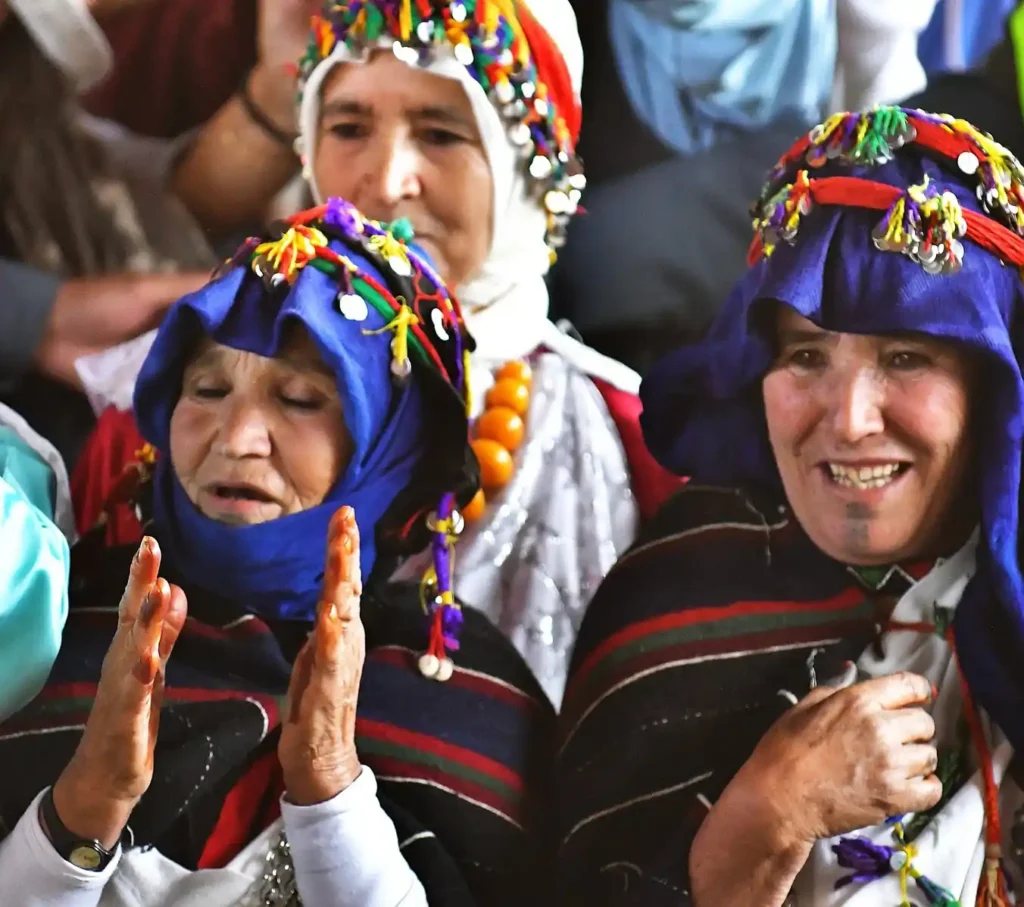
Women play a significant role in the Imilchil Marriage Festival. They are responsible for preparing the food, decorating the tents, and participating in cultural performances. They also play a key role in the matchmaking process, as they are often the ones who negotiate the terms of the marriage on behalf of their families. While the festival is steeped in patriarchal traditions, women are still able to assert their agency and play an important role in the community.
Challenges and Controversies:
The Imilchil Marriage Festival is not without its challenges and controversies. Some have criticized the festival for perpetuating patriarchal traditions and reinforcing gender roles. Others have raised concerns about the commodification of culture and the impact of tourism on the local community. There have also been calls for greater recognition and preservation of Berber culture, which has historically been marginalized in Morocco.
Future of the Festival:
Despite these challenges, the Imilchil Marriage Festival continues to be an important cultural event for the Berber community. As the festival grows in popularity, there is a need to balance tradition with modernity and ensure that it remains rooted in Berber culture. This includes promoting greater gender equality and addressing the impact of tourism on the local community. Ultimately, the future of the festival will depend on the ability of the Berber community to adapt and evolve while staying true to their cultural identity.
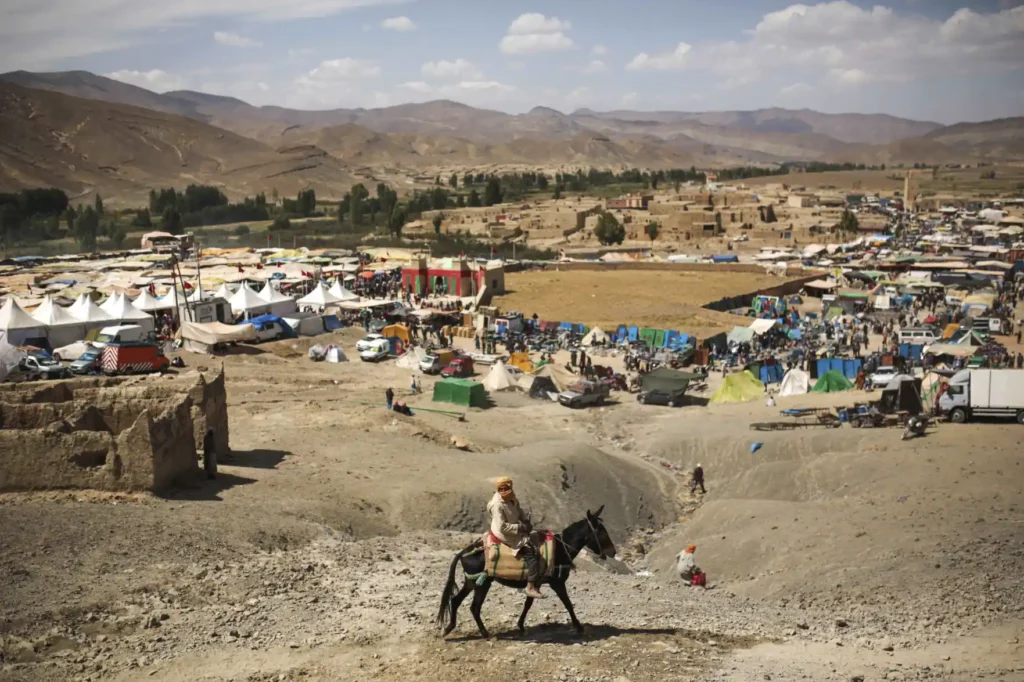
In summary, the Imilchil Marriage Festival is an annual celebration of love and marriage held in the town of Imilchil in Morocco’s Atlas Mountains. It is a traditional Berber event that has been celebrated for centuries and attracts thousands of visitors each year. The festival is a colorful and lively event, featuring traditional Berber music, food, crafts, and clothing. It also provides an opportunity for young men and women to meet and potentially find their soulmates, culminating in a mass wedding ceremony where dozens of couples are married in a traditional Berber ceremony. The Imilchil Marriage Festival is a testament to the importance of community and family in Berber society and a celebration of the enduring power of love.

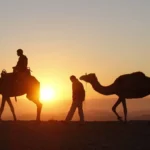
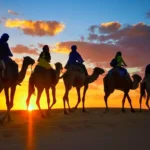

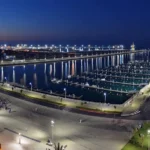
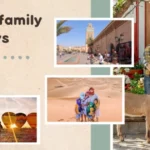


Hello, are you able to tell me the dates for this year’s Imilchil Marriage Festival as myself and my husband are really keen to see this event.
Thank you,
Annemarie
Hello, we hope you are doing well. The wedding festival in Imilchil will take place from September 21nd to September 23th, providing a unique opportunity to witness and immerse yourself in the cultural celebrations during these three days of festivities. Could you contact us by email for more details about this event? desertmerzougatours@gmail.com
best regards,
Ibrahim
hi
what are the dates of the festival this year
thank you
Hello, we hope you are doing well. The wedding festival in Imilchil will take place from September 21nd to September 23th, providing a unique opportunity to witness and immerse yourself in the cultural celebrations during these three days of festivities. Could you contact us by email for more details about this event? desertmerzougatours@gmail.com
best regards,
Ibrahim
Hi,
We are in morocco next week and interested in the festival, is still taking place?
Thank you!
[…] Opportunities to learn a new language, become part of local communities, and experience a diverse cultural tapestry are all there. Living in a city allows expats to experience a more globalized way of life, […]
Hey people!!!!!
Good mood and good luck to everyone!!!!!